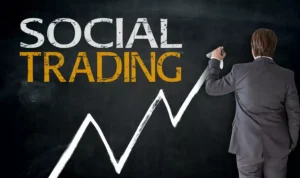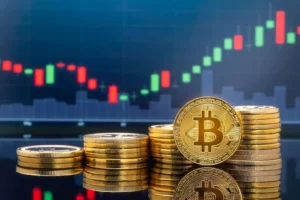The speed and comfort of crypto trading are increasing. Depending on the market order and capitalization, consumers may transact any amount utilizing the virtual platform. But don’t forget that someone must be on the other side of the operation when you make manipulations with an asset. Liquidity providers facilitate the sale between two parties and guarantee some people want to sell and buy various assets on the platform anytime.
The definition of a market maker
Market makers are essential in creating a liquid environment; they can work as brokers or dealers. Reliable liquidity providers guarantee the vitality of the financial market.
Most platforms that trade cryptocurrencies, stocks, and other assets maintain book orders comprising members’ register, sell and offer costs, buy and sell order values, and order archives. The order book includes the value of assets at this moment and informs investors of the maximum and minimum prices during the day.
In most cases, solid financial establishments offer market maker services due to the required volumes, but sometimes these tasks are taken on by single traders. Although each investor can be called a player with a particular share of the operating book, the requirements to ensure specific trading capacities are so strict it is difficult for ordinary traders to match them.
A side that plans to provide broker and dealer services must prove that it has the appropriate authority, an excellent credit rating, and can cope with a long list of requests that varies from country to country.


Turnkey Brokerage Solution For Your Business
Get the most profitable fully licensed fx/crypto brokerage software or ready-to-operate business in 48 hours. Best-in-class web & mobile trading platforms, sales-driven CRM, full integration with MT4/5, and 150+ payment providers.
Leading groups of market players
The exchange on bail selects the appointed market makers (DMM). The leading liquidity providers sustain quotes for purchasing and selling products in different systems. Digital multimeters have great potential and can form several hundred platforms simultaneously.
Automated market makers (AMM) operate offline on decentralized finance. AMMs deal with smart contracts for providing liquidity on the exchange. AAM excluded the human factor from the formation process, ensuring incredible operations speed and transparency.
AMM removes all restrictions on centralized exchanges and order books and interacts with offline protocols, thanks to which users may initiate transactions using personal crypto wallets. They form liquidity pools in which all liquidity providers can participate and receive income from legal manipulations on the exchange.
Features of the work of market makers
Any market maker sets quotes for the sale and purchase of a certain amount of cryptocurrency or securities. When he receives an order from a client, he immediately sells his position in cyber assets. Thus, the order is successfully completed. Simply, market-making provides flexibility in the financial industry, allowing sellers and buyers of cryptocurrencies to buy and sell assets. Without such a broker-dealer, the transaction quantity would be much smaller, reducing investment activity.
Market makers constantly indicate the prices at which they plan to buy or sell assets. They also identify the trade volume, the frequency when resources will be quoted at the optimal ask, and bit prices. The market maker must adhere to the parameters, regardless of financial forecasts. Even if the industry has entered a period of volatility, these specialists must proceed carefully to ensure smooth transactions.

Some ways market makers get an income
Market makers interact with crypto merchants and get a spray from the purchase and sale prices. Let’s remember specialists perform as sellers or buyers, set ask and bid prices, and traders buy and sell at the specified cost.
Cryptocurrency traders profit by purchasing cyber coins at a lower price and selling them at a higher value, whereas market makers earn from spreads. The spread is the distinction between the bid price at which the sale takes place and the lower existing cost. Investors who decide to buy digital assets pay an ask price a bit higher than the fair worth. The market maker’s income is the distinction between the worth traders get and the reasonable cost.
Why market makers are critical for the crypto industry
Market makers must be impartial and formulate their offers, considering supply and demand in the digital asset sphere. A high supply with low demand may cause a low ask or bid price, and a low supply with significant demand can lead to a high ask or bid price. That’s why such broker-dealers place many buy and sell orders, confirming the supply and demand in the cryptocurrency market. Let’s discuss other tasks these financial professionals successfully cope with:
- Liquidity guarantee: one of the main challenges blockchain-based projects faces is proper risk management. Experienced specialists constantly monitor the state of affairs in the crypto areas and make the best decisions to ensure the safety of capital.
- Support for value and trading volumes: even efficient crypto coins can collapse without the proper support from cryptocurrency liquidity providers. Brokers-dealers provide high liquidity ratios so that the market establishes an optimal price level, a narrow spread, and stable trading volumes.
- Dealing with purchasing power: purchasing power facilitation ensures customer confidence in the project, which is especially critical in a declining market. Market makers control tokens are purchased on time in the selected trading pair. Even in the event of panic among people, it will be possible to maintain crypto-token performance.
- Interaction with order book: the presence of brokers-dealers on the platform guarantees that the liquidity ratio depth is enough to fill orders fast and without problems. Crypto projects no longer need to worry about price manipulations; specialists will monitor the status of order books.
- Arbitrage market formation: due to the significant liquidity of assets in conventional markets, arbitrage, which involves buying and selling products with different values on multiple exchanges, is not as popular as it used to be. At the same time, much digital money on the DEX has low liquidity, expanding the potential for arbitrage until the liquidity of markets is optimal.
A responsible market maker, when providing quotes, will announce information about the price range, regardless of market volatility. In high-frequency environments, broker-dealers must ensure they can take the trade at the specified rate and access the assets once the order is placed. Then they must complete the operation at a balanced price.
Advantages and disadvantages of market making
Traders benefit most from the work of market makers with small and private accounts. If we speak about downsides, they are relevant, first of all, for large cryptocurrency traders. Among the advantages are the following aspects:
- Security and accessibility: brokers-dealers provide investors with access to virtual assets that would otherwise be inaccessible.
- Investor confidence: market makers instill hope in traders that they will benefit from investing in assets. Such specialists analyze assets differently than small people in business. They work like barometers for the entire market.
- Stability in the industry: broker-dealers improve the financial operation and guarantee their volume and liquidity.
However, despite all the above advantages, there is always a risk that brokers-dealers, who have inside information, can take part in insider trading and receive income illegally, which can cause a harsh response from the regulatory authorities. To avoid a clash of interest, crypto traders who work on an exchange should exercise caution and ensure that the exchange and liquidity providers are two different people. Since market makers work with other assets, they can combine, causing massive damage to markets and investments.
Conclusion
In technical terms, the role of market makers is quite complicated, but they are essential participants in exchanges. They are the anchor of every trade. Without these responsive intermediaries working to secure enough cryptocurrencies for easy trading at attractive prices, the millions of daily transactions in the digital asset area would not be possible.






